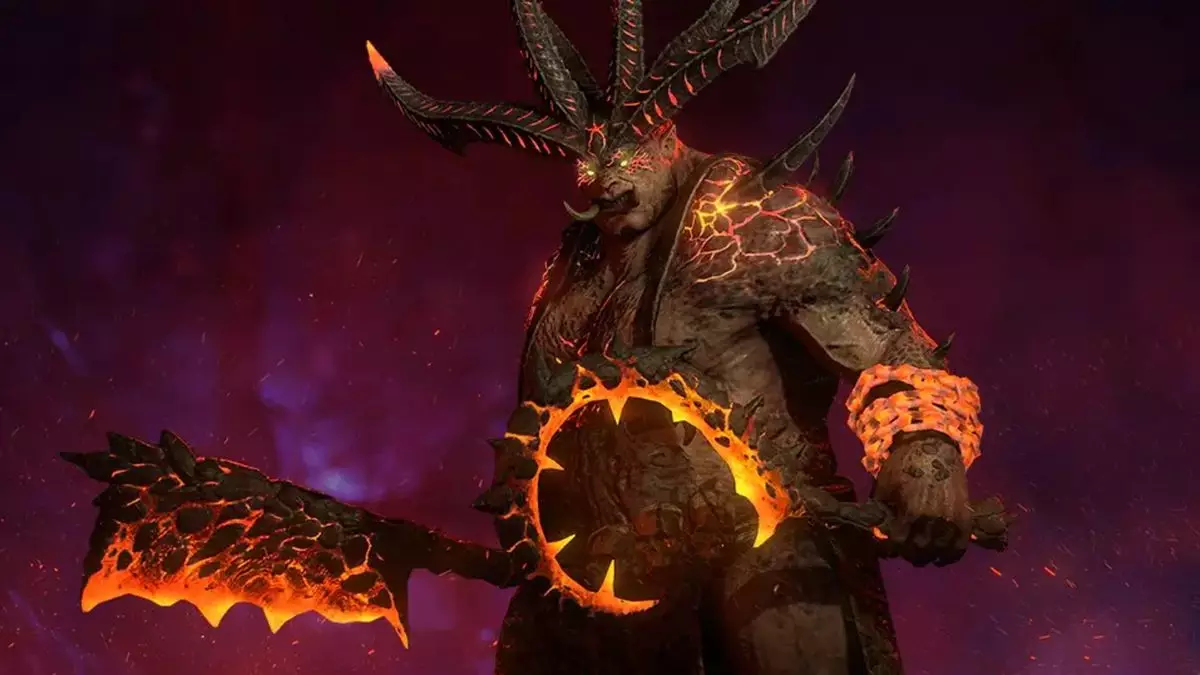In a bold move that has generated significant discourse within the gaming community, Rod Fergusson, the head of the Diablo franchise, recently stirred controversy by proposing that Action Role-Playing Games (ARPGs) akin to Diablo might be categorized as “Diablo-likes.” This suggestion emerged from Fergusson’s tweet, in which he compared the potential naming convention to established terms in gaming such as “Souls-like” and “Roguelike.” While the intention behind his statement was to address the evolving nature of the ARPG genre, the backlash he faced was swift and intense, leading to a notable online debate.
The volume of disapproval directed at Fergusson’s tweet was striking. The tweet, which aimed to foster a discussion around genre labeling, was almost immediately met with skepticism. One of the most notable responses came from streamer Empyrian, whose succinct dismissal of the proposal resonated with many others, evidenced by the significant ratio of likes on the reply compared to Fergusson’s original message. With 1.4k likes on Empyrian’s reply versus the 728 on Fergusson’s, it demonstrated the community’s reluctance to embrace the “Diablo-like” label. The sheer number of comments—over 2k—reflects a community divided, with many voicing their discontent with Fergusson’s suggestion.
Context is vital in understanding why Fergusson’s tweet was met with such backlash, particularly given its timing with the early access reveal of Path of Exile 2. As one of Diablo’s most prominent competitors, Path of Exile has long been regarded as a spiritual successor to Diablo 2. The suggestion to rebrand ARPGs in the context of Diablo, less than a day after Path of Exile 2’s major announcement, raises eyebrows. Many speculate that Fergusson’s tweet may have stemmed from a place of frustration regarding Path of Exile’s increasing prominence in the genre, suggesting that the tweet was not merely an innocent question but possibly a defensive reaction to the competitive landscape.
Despite the controversy, it is essential to recognize the profound influence the Diablo franchise has exerted over the ARPG genre. Since the release of the original Diablo, the series has shaped the mechanics, aesthetics, and narrative structures within the genre. Consequently, labeling games that follow the Diablo formula as “Diablo-likes” could be seen as an attempt to categorize the influence of a paradigm-shifting series. Previous successful labels like “Souls-like” and “Roguelike” have created distinct subgenres of their own, and Fergusson’s proposal may reflect an effort to formalize that influence for better identification.
The ongoing discussion surrounding the proposed “Diablo-like” classification illustrates how passionate the gaming community is about their beloved genres. While Fergusson’s intention may have been to clarify a burgeoning categorization issue, the backlash signifies a community protective of its heritage. As the ARPG genre continues to evolve, the challenge will be to find a consensus on genre labels that honor classic influences while embracing innovations—a delicate balance that speaks to the heart of gaming culture.

